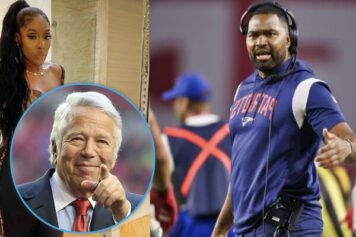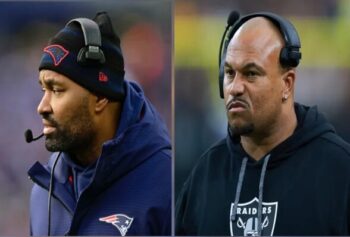Tom Brady is being praised.
In reality, he should be ridiculed.
Brady, the New England Patriots’ quarterback, didn’t take a huge pay cut in signing a new three-year, $27-million extension. At the end of the day, he basically is going to get all the loot coming to him.
But that’s not the case most of the time when a player restructures his deal for the so-called betterment of the team.
This time around, Brady might have just thrown his fellow NFLers under the bus.
Brady’s action, taking a below-market price for the final three years of his deal—$7 million for 2015, $8 million for 2016 and $9 million in 2017—isn’t a good thing for his peers.
The other owners will use Brady as the poster child for putting their team ahead of themselves, now. And if the player balks, owners and executives will parrot to fans that the player in negotiation doesn’t want to win like Brady.
Nonsense.
To this day, it makes no sense why NFL teams are even allowed to renegotiate a player's contract for a pay cut in order to give the team more cap space so it can add free-agent players to its roster.
It’s basically Hollywood accounting gone wild.
Remember, the salary cap is just a manufactured number—not based on science or some birthright—used so that owners can maximize their profits, and rob the players from working in the free-market system the rest of us live in.
It’s a con. Just like the celebrated move by Brady.
Nobody threw their arms up in disgust when Ahmad Bradshaw, Demetress Bell, Chris Canty, and Kyle Vanden Bosch—just to name a few—were released in the last few weeks.
Most weren’t bounced because of a lack of productivity; it was simply because their “cap number” was too high.
The system isn’t fair to players. It pushes guys with contracts out the door.
There’s even talk that the Super Bowl champion Baltimore Ravens might make receiver Anquan Boldin a cap casualty. To his credit, Boldin is claiming that he’ll retire if the Ravens release him.
There’s no way Boldin should be forced to move to another team to make less money than the contract amount he was signed for. The team should be penalized, not the player.
Meanwhile, Brady and the NFL have many fans—and worse, some reporters—brainwashed into believing that this is such a noble gesture. After all, most of the stories out there are that Brady doesn’t care about money, just winning.
That whole notion makes some fans warm and fuzzy inside. They say to their buddy at the bar: “See Brady isn’t greedy. He wants to win more than anything.”
Please, stop it.
Brady would be worthy of even more respect and sainthood-like status, if he didn’t go along with the owners’ bad business with the players.
How wonderful would it have been if Brady said no, publicly, and shed light on a system that takes advantage of the actual men that make the game “The Game”—the players.
Brady is lucky. Even if he declined, the New England Patriots weren’t going to release him. Fans should look at the countless others who have been shown the door because the team simply didn’t want to pay them what they negotiated in a deal agreed by both sides.
To make it worse, conversely, the players can’t arbitrarily change their deals and add raises because, perhaps, they out-performed their salaries. Nope. DeSean Jackson had to eat his contract. Next season, Colin Kaepernick will earn $850,000—10 to 20 times below what his market value probably is.
But management can do what it wants, even demand for a player to take less now.
In the history of unions, it smells like the worst deal ever.
I’m still waiting for an owner to take less profits and instead pour more money into his team, or even a coach to volunteer to take less pay to add another missing piece to his squad.
Oh yeah, they get to keep all of their loot in original form.
The players are always made out to be the bad guys. They are selfish. They are greedy.
Ask Dwight Freeney if he is. After 11 stellar years with the Indianapolis Colts—seven of them as an All-Pro—he was shown the door.
It’s not because he’s not a good player anymore. For sure, he’s still an effective edge rusher in this league. They just don’t want to pay him.
The funny thing is that you seldom read a column about how evil the owner is when he tells a player to “restructure or else”—as in, if you don’t, you’re cut.
The onus shouldn’t be on players to fix the phony NFL math.
The teams should have to do their business correctly and not expect the players to bail them out.
Thanks, Tom—for nothing.



